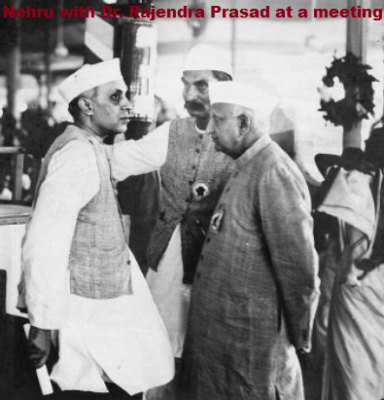
There were a series of Acts related to India passed by the British Parliament between 1773 and 1935. The first such Acts were known as East India Company Acts and the later ones were titled Government of India Acts.
Of these the 1935 Government of India Act was the longest Act of British Parliament enacted till then. Some of the most significant aspects of the Act were – granting of a large measure of autonomy to the provinces of British India, the establishment of a federation of India, the introduction of direct elections and a partial reorganization of the provinces.
Rajendra Prasad, along with many other moderates, welcomed the Act since it gave Indians the chance to participate in government immediately. They believed that power-sharing was the best way forward and the first step towards full ‘home rule’.
Others disagreed arguing that power-sharing was likely to slow up processes towards independence and that Britain was using it as a sop to the nationalist movement. Nehru was of the opinion that the Congress should stick to its principles and refuse to collaborate with Britain.
Finally, a compromise was worked out whereby the Congress would formally reject the 1935 Act (thus registering its dissatisfaction with the provisions of the Act), but would put up candidates in the elections to the legislative assemblies due to be held in 1937.
Although Nehru was unhappy with this decision, he immediately set to work to marshal the party into a unified force ready for the elections ahead.
Picture Credit : Google




